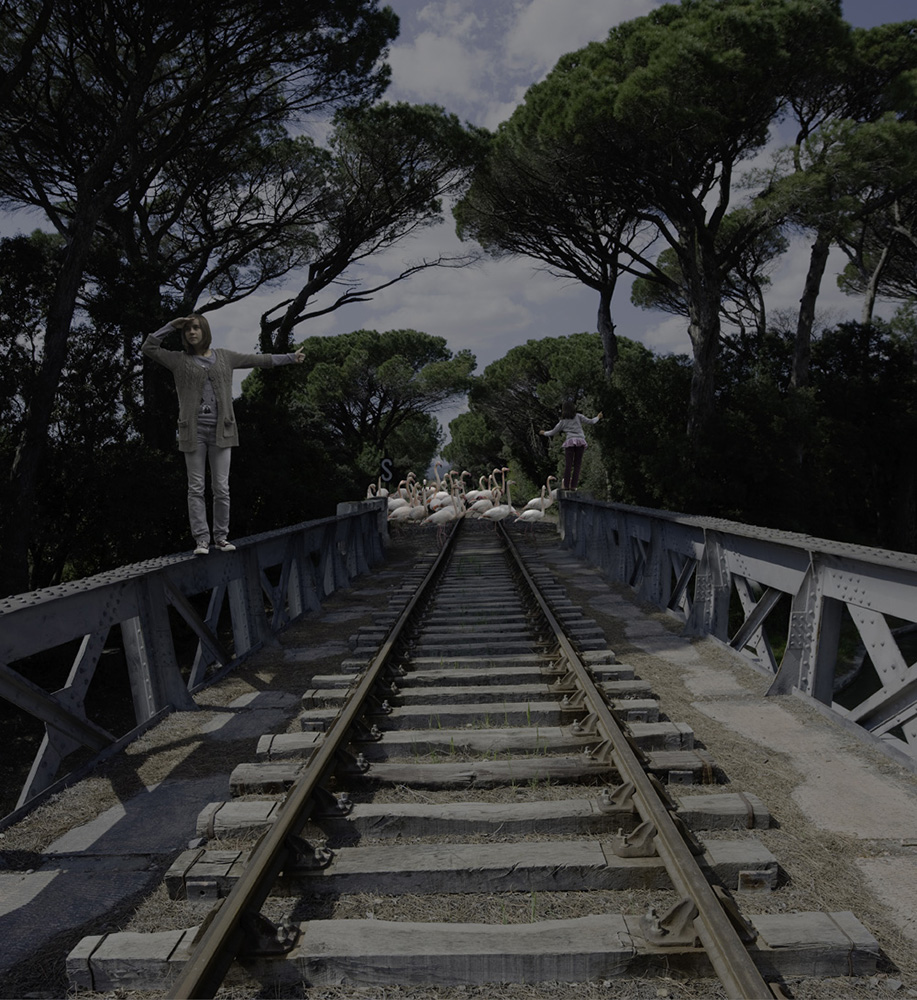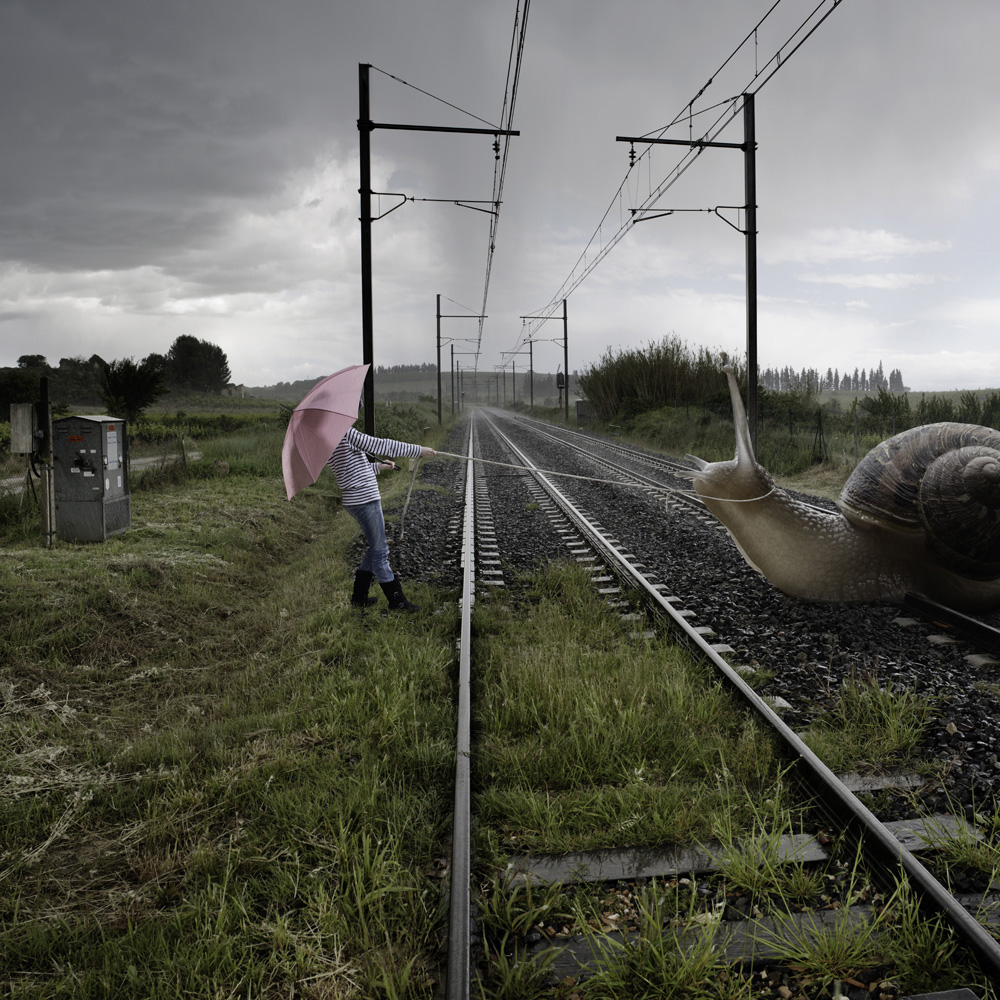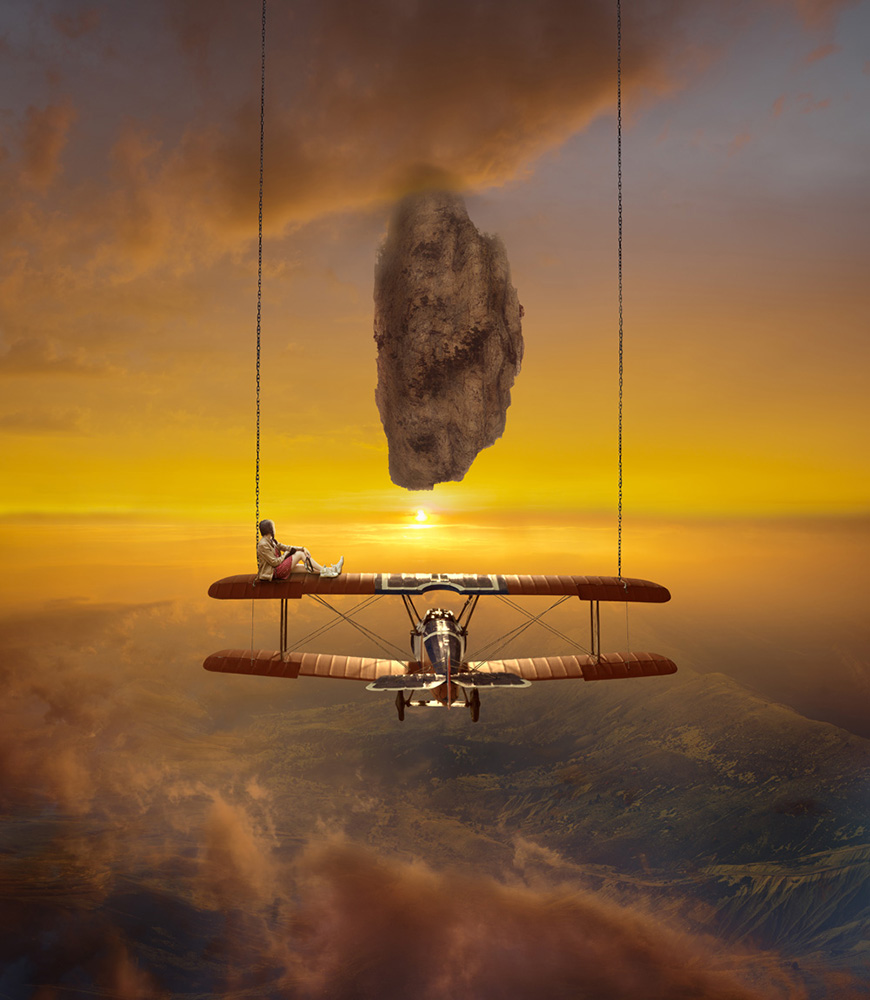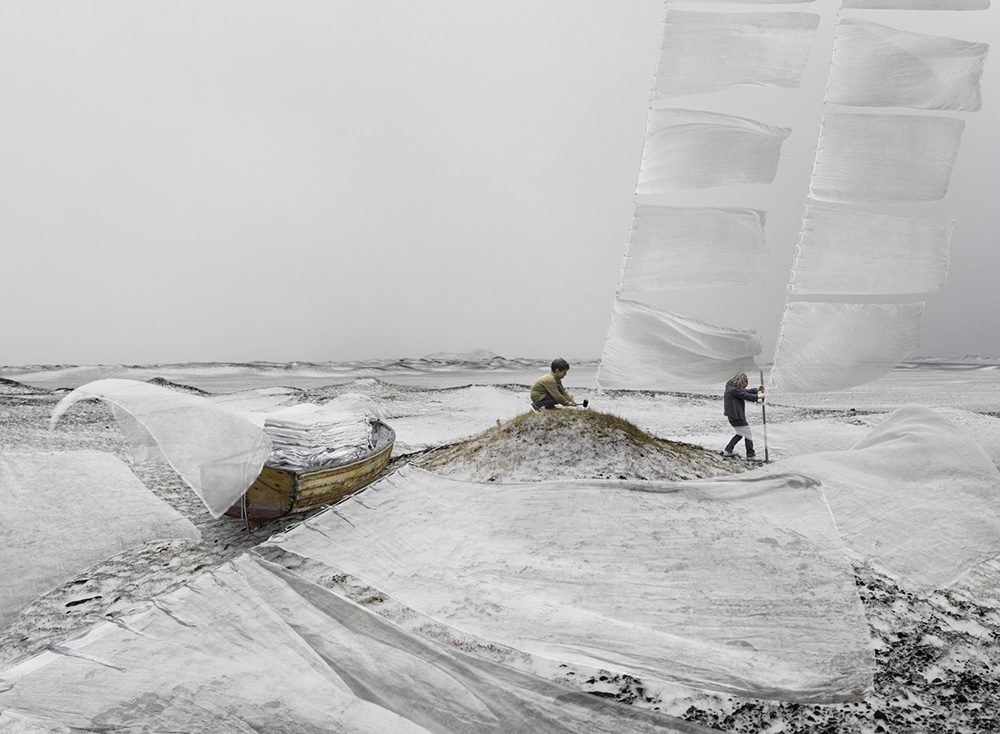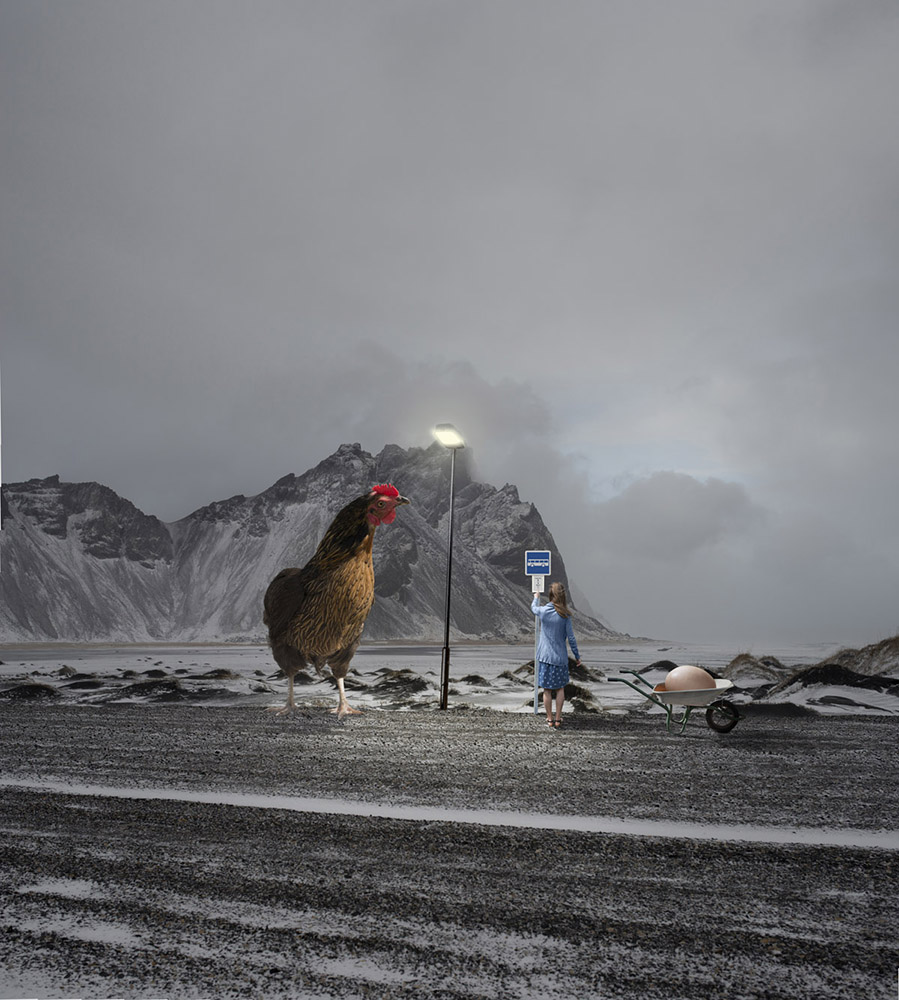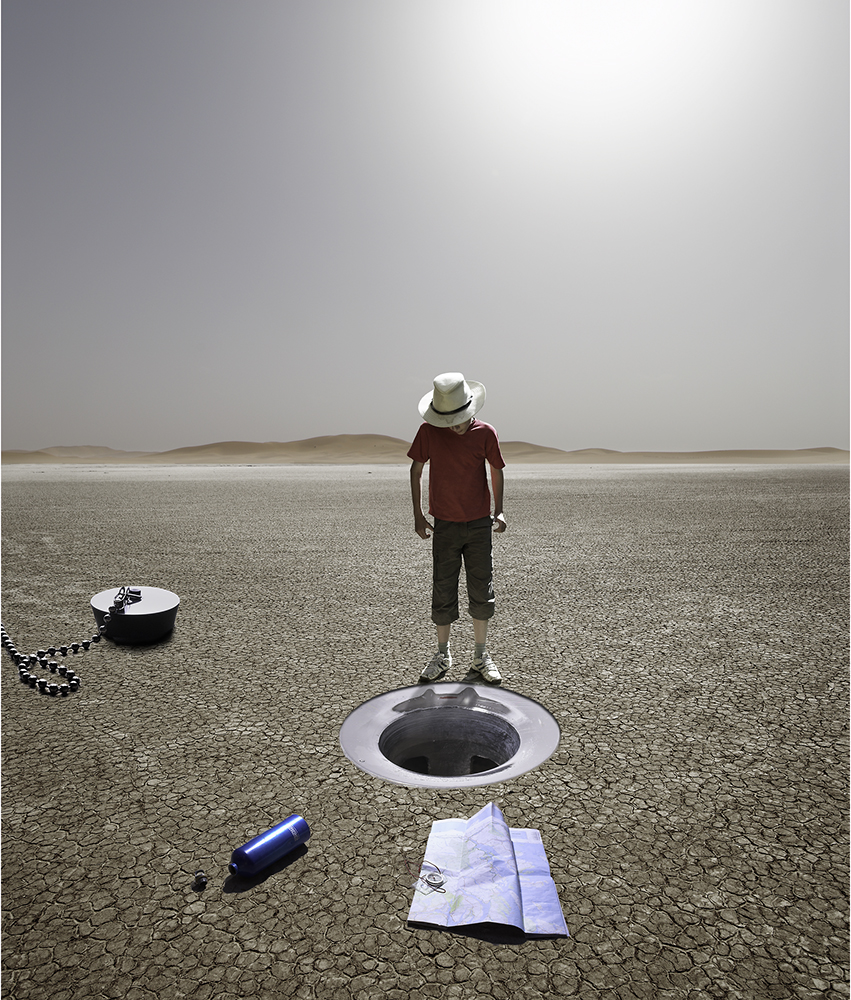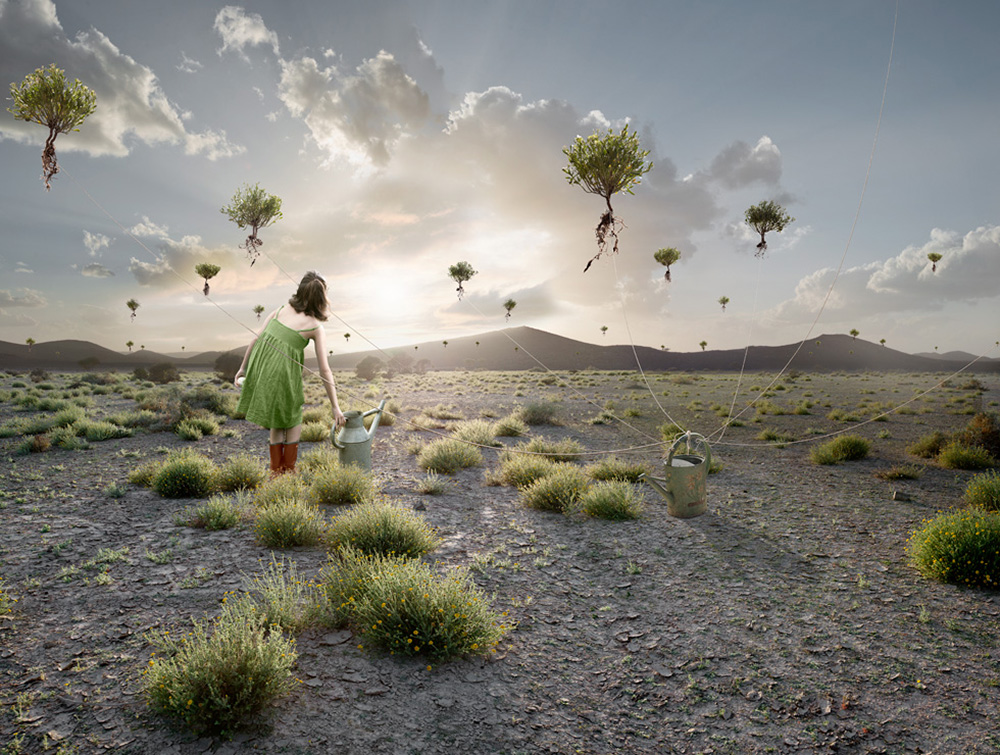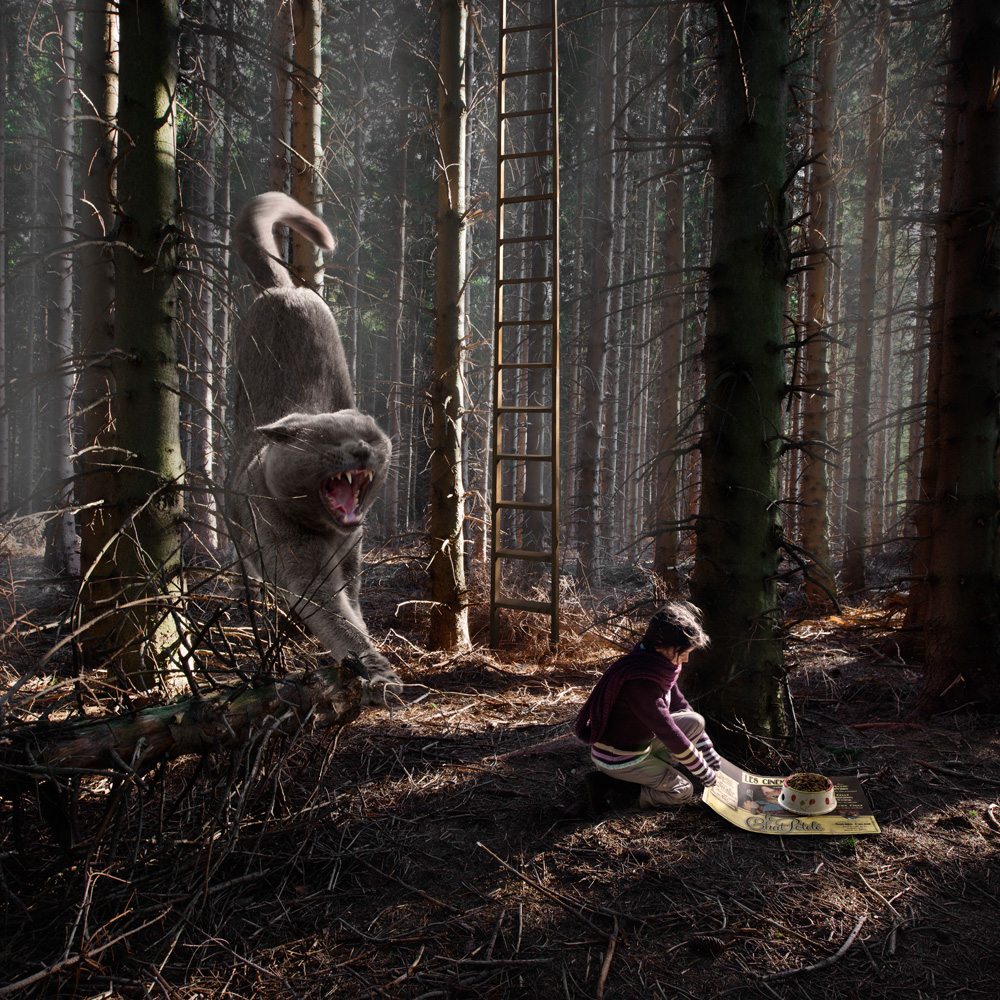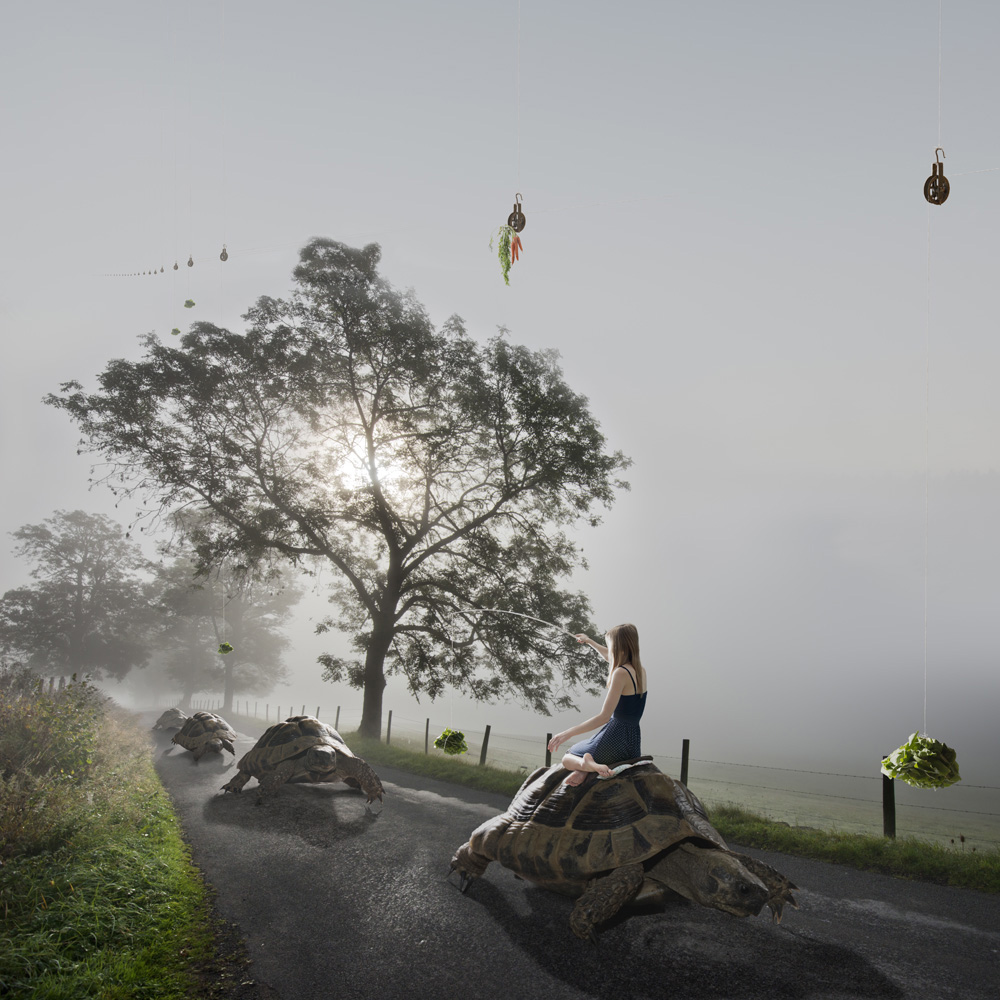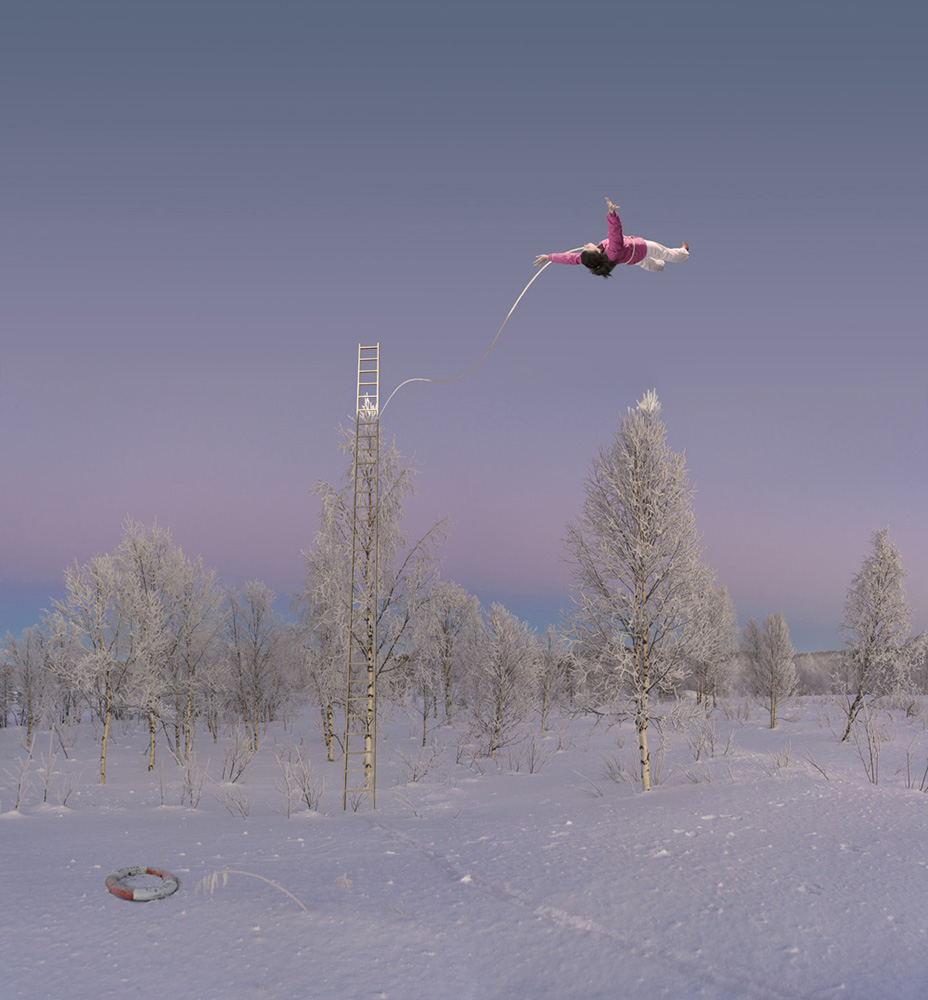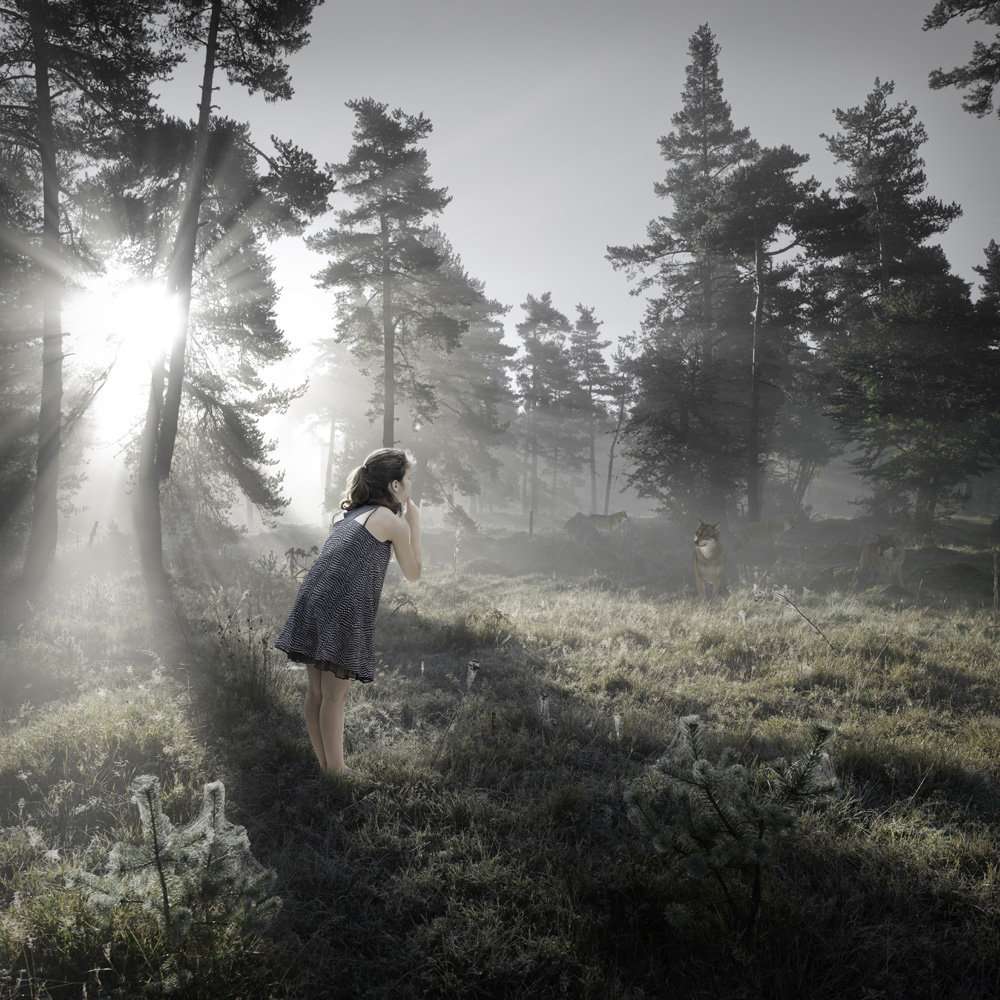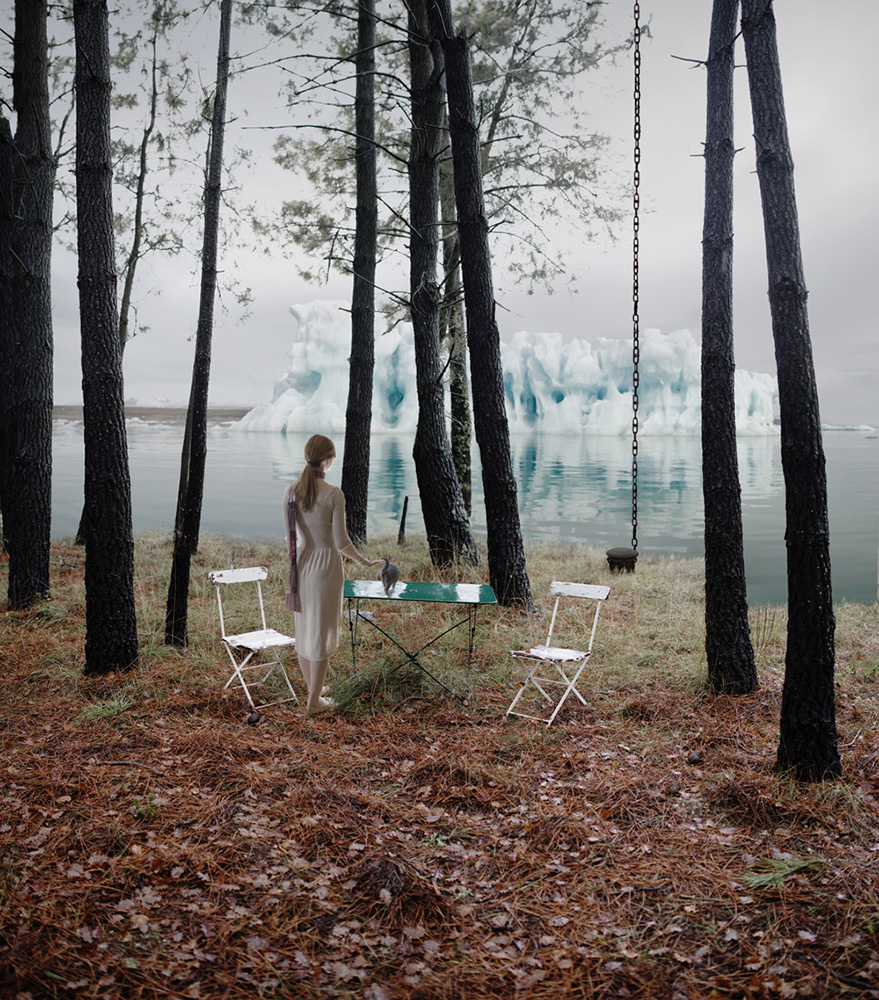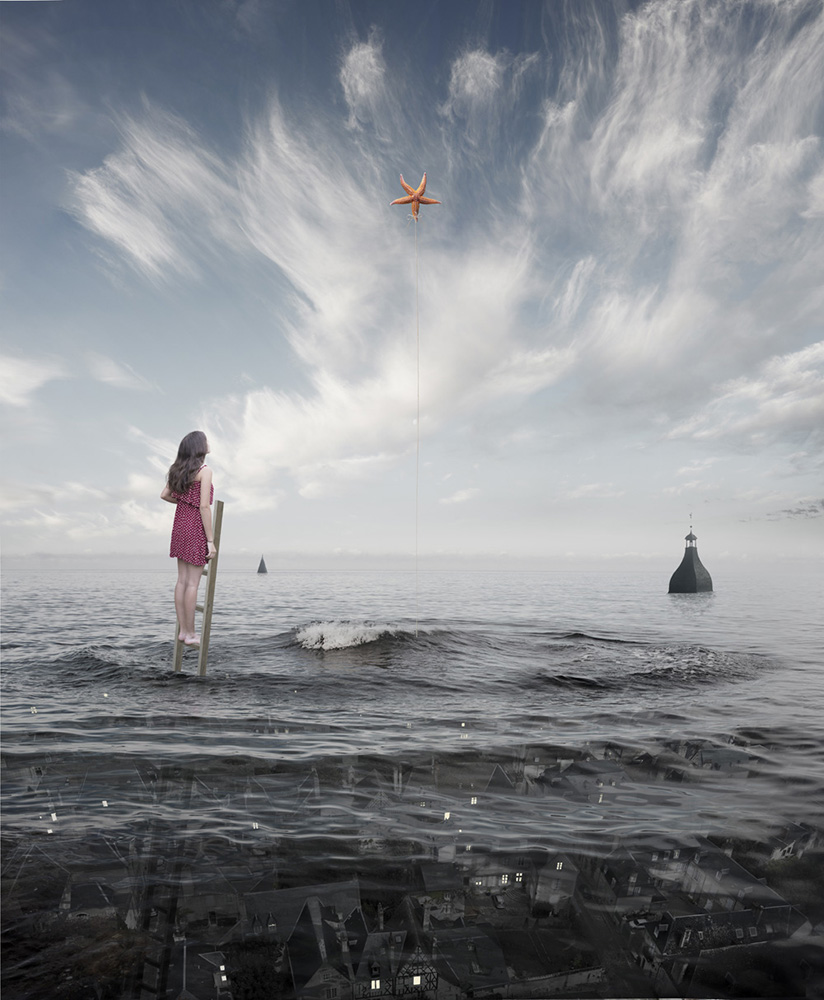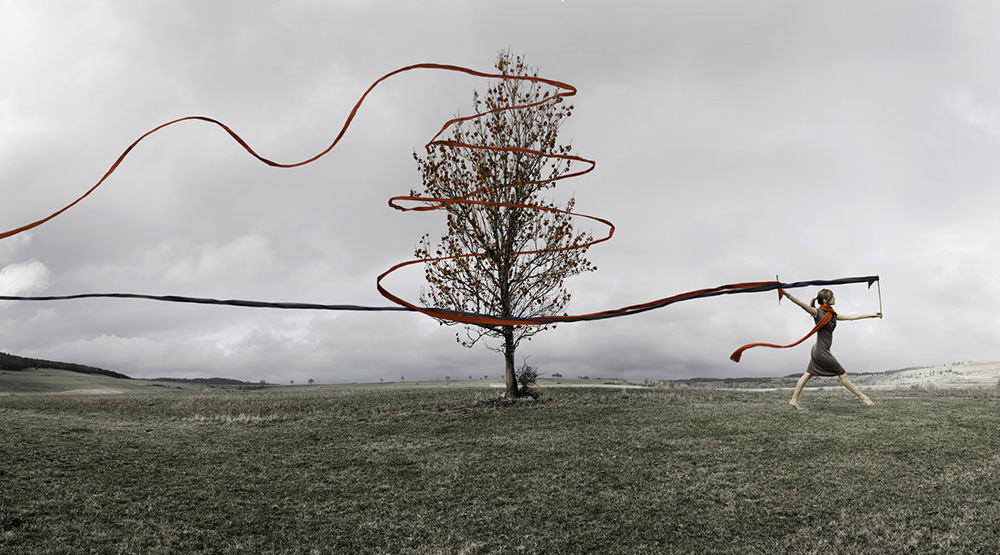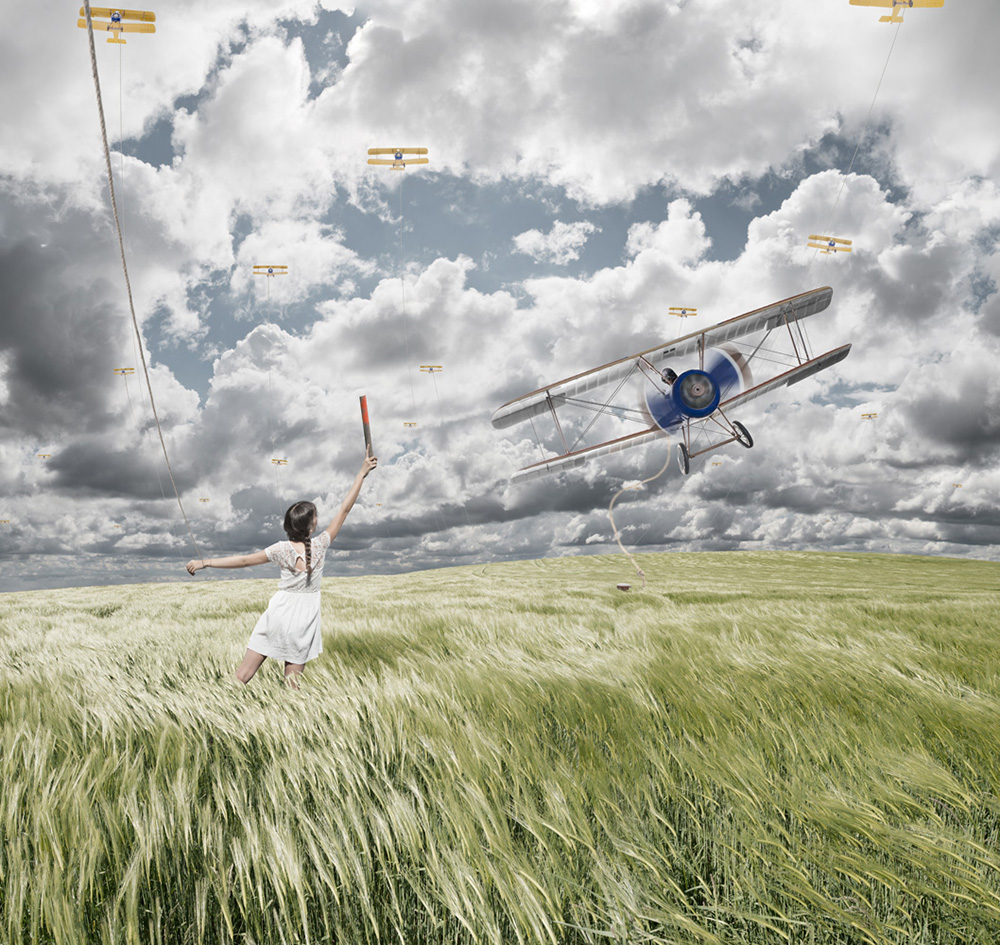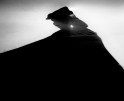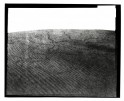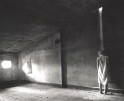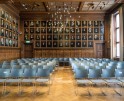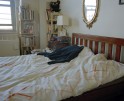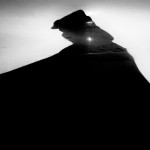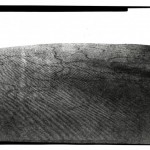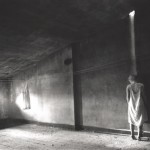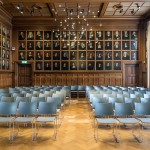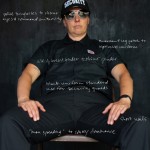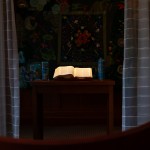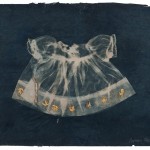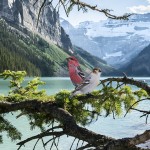France Week: Alastair Magnaldo
I had the distinct pleasure of meeting Alastair Magnaldo at a dinner party in Nice some years ago and was pleasantly surprised to learn that in addition to being a scientific researcher, he also found the time to develop a fascinating practice in photographic surrealism and fantasy. Over the past few years, I have followed his artistic development and was utterly intrigued by the imaginative range of both his fantasies and his darker pursuits of the absurdity and futility of war. The more upbeat and amusing fantasies are portrayed in the series, “Small World” which he has chosen to highlight here, but I encourage you to peruse his website to explore his darker moments.
Alastair Magnaldo was born in Great Britain but raised in Nice, France. He graduated from university with a Ph.D. in Physical Chemistry but found his true means of expression through art and photography. Alastair employs photography as a means of escaping reality. He combines elusive and mysterious landscapes peopled with children, animals and surrealistic scenarios that are dreamlike in their execution. He has exhibited widely throughout France and internationally including the International Festival of Nature Photography, Montier-en-Dier, Phot’Aubrac, , La Rotonde, Arles, Galerie du Lecernaire, Paris, Pingyao International Festival of Photography, China, and various group exhibitions and photo festivals. He was awarded the Creativity Grand Prize by the French Photographic Federation in 2009 and his work has been published by numerous magazines including The Digital Publisher, Phot’Art International, Digital Photo Pro, La Repubblica and Philosphe Magazine. He currently resides in Connaux, France.
Small World
For me, photography is the perfect alibi for a permanent form of escapism. My diverse landscapes (from Spitzberg to Oman) are depicted from a tender and mischievous perspective. I am an eternal dreamer of freedom who gently interacts with nature in its unique form. My perspective is full of various “stars” as seen through the eyes of a child, as we all were once upon a time. That is the key to these images that traverse worlds. The series is an attempt to show how the limited nature of our world conflicts with our imagination. This ties in with one of the ultimate issues of ecology: not to physically appropriate nature, as is too often the case today, but to represent it through reflection and imagination that are both strictly non-aggressive acts. My landscapes are not an end unto themselves but the start of a process of introducing dreams into the realm of the ordinary. The work adheres to an ecological vision and is an important step toward ecological consciousness; the appropriation of nature through thought.
How would you define yourself as a photographer?
I find it difficult to define myself. Some American photographers define my work as “surrealism with a good dose of pathos”. Some French colleagues define my work as something very close to Saint-Exupéry, not only in what is seen, but also in its delicacy and poetry.
Reflecting upon my work, I see my photography as the expression of a perpetually inventive mind, and all that goes with it, including the doubts and fears, but above all the strong sentiment of never being in the right place. Some of my images clearly demonstrate this.
Ultimately, I would define myself as a photographic inventor portraying innovative surrealistic staged concepts in a poetic and beautiful manner.
What influences do you ascribe to the French photographic tradition?
As a French photographer, we were brought up with the mainstream street photography of Cartier-Bresson and his followers. Everything departing from the “decisive moment” was suspect and challenged the definition of “photography” (I even have a portfolio with my own definition of the “decisive moment”). So I cannot say I was influenced by a French photographic tradition.
However, the poetic dimension of some of my surreal compositions stems clearly from my French childhood. One could say the same of the delicacy and the sheer beauty of the images.
In looking over your work, I find an interesting contradiction between the surrealistic images of childhood innocence and the more violent images of your Combat Mission series? How do you explain that contradiction?
Yes, and it is not the only contradiction! As a sensitive person, one can only be amazed at the beauty of our world. And I still fail to understand the act of war. It constantly haunts me and yet fascinates me. I think any sort of deep incomprehension sparks true fascination and curiosity, just like the themes of suicide and death (some of my images touch upon these themes). This ties into my self-definition as a perpetual inventor and my deep desire to understand everything – and to master everything. Here we are coming to grips with what may define me. I do define myself as: having a profound need for understanding and above all – meaning.
In many of your images there is only one solitary figure, often a child. Is there an autobiographical element in this choice of focus?
Yes. We are the sole spectators of our inner worlds. Even more, we can all identify with children. We were all children at one time. A solitary adult figure immediately generates more questions about motive and purpose. Adults are seen as more complex figures bearing the weight of life and self-history. The subject of an image is not the person in particular but the inner worlds the pictures suggest. This is why the children are looking towards the scenes.
You mentioned to me that you had fallen into a period of “burnout” over the past year. What are the origins of that slump and what are you doing to get yourself back on track? What’s next?
As I mentioned previously, I need to find a profound meaning in everything I do. The loss of meaning is terrifying and leads to the worst suffering. When meaning evaporates, I am faced with the impossibility to do anything. Taking time off –thank you social security – is the key to building up sufficient energy in order to reverse the situation – allowing myself to find what nourishes me. At the moment I nourish myself by playing music and investing in a sustainable housing project. And gradually, new scenes and beautiful images of lush landscapes and feathery clouds are coming back. I’ll be back on track in a few months with a new portfolio…or maybe not. I now just take things as they come!
I know you have dual career tracks as a photographer and as a researcher. How do you manage to juggle two demanding careers?
I don’t! Well not exactly… As I said above, I have a strong feeling of never being in the right place. I’m a professional photographer, but I do not consider myself as one. I play music, but I’m not a musician. I do research work but I do not identify myself as “real” one, although I do acknowledge the fact that I do perform well in every category. Difficulties arise not necessarily form the issue of performance, but more from trying to avoid the modern tendency to identify people by what they do and not what they are. I identify myself as a “jack of all arts and master of none – better that master of one”. In fact on an everyday basis such a position is very difficult to defend, and it draws tremendous energy to overcome the tendency to over-specialize that we have today. And yet the need for masters of “jack of all arts” is huge. Putting a bit of poetry into science is extremely appreciated – as is the opposite. I’m serious in saying that viewing the beauty of science and not solely the cold facts often leads to solutions that were never foreseen – and bring meaning!
How did you get started in photography?
Well I started with simple street photography. I then fell in love with landscape photography and the feeling of escape its gives me – in the creating and the showing. I quickly recognized that I had to go further. I literally “live” landscapes or even cityscapes and the tons of things on them, in them, over them, above them…wherever my imagination takes me.
Posts on Lenscratch may not be reproduced without the permission of the Lenscratch staff and the photographer.
Recommended
-
Jonathan Silbert: InsightsFebruary 19th, 2026
-
Olga Fried: Intangible EncountersFebruary 18th, 2026
-
Anne McDonald: Self-PortraitsFebruary 17th, 2026
-
Review Santa Fe: Leslee Broersma: Tracing AcademiaFebruary 11th, 2026
-
Review Santa Fe: Ilana Grollman: Just Know That I Love YouFebruary 10th, 2026

